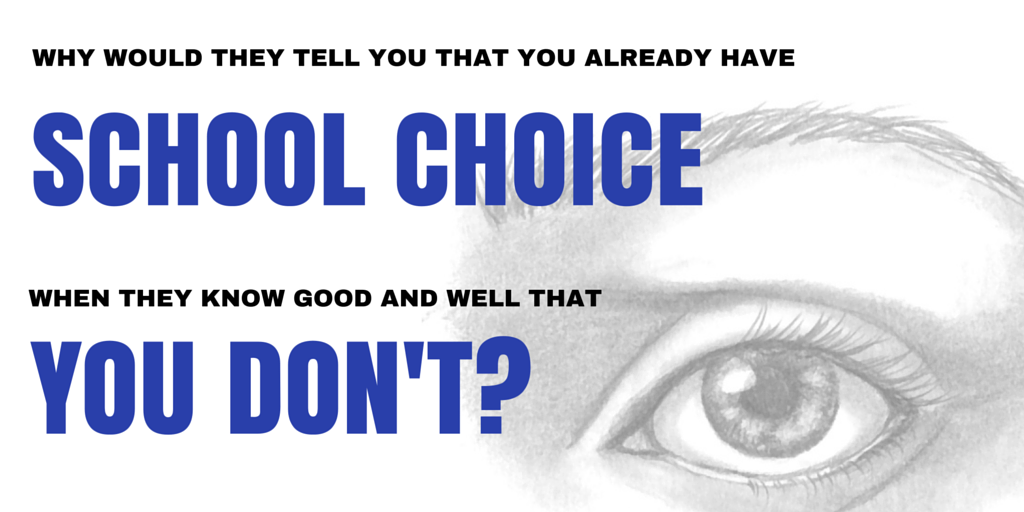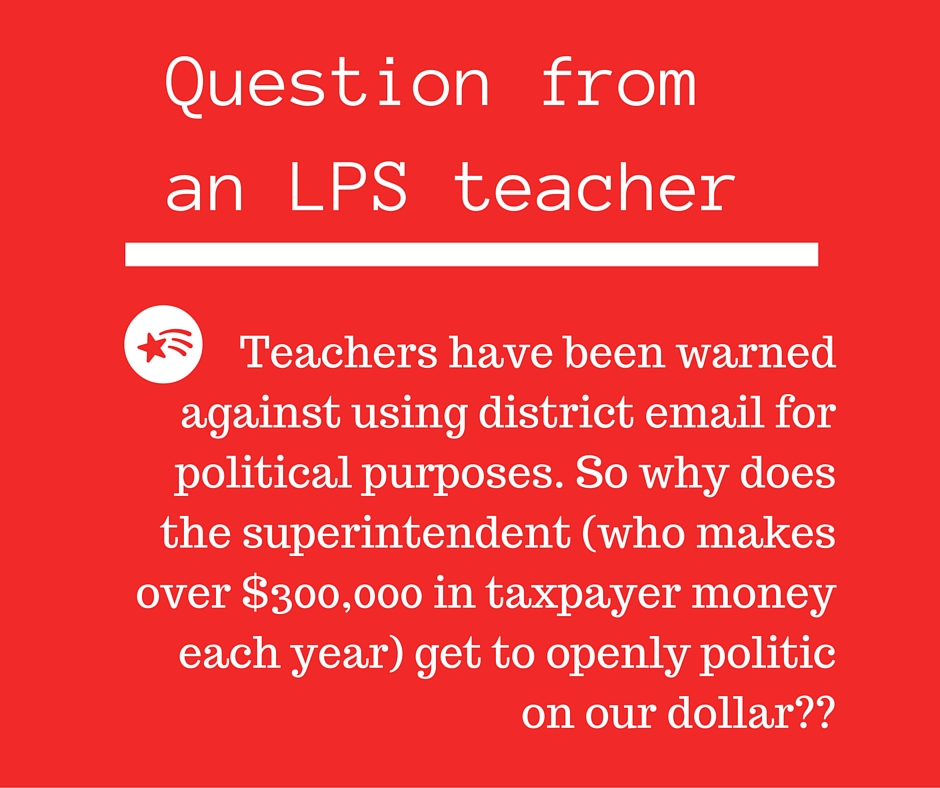|
Let’s say there’s a woman who has spent twenty years studying autism. She has raised an autistic child, studied autism in school, and worked professionally as an educator. She not only knows the research about how autistic children learn best, but she has practical working knowledge. Even more important, she is passionate about this cause. She is willing to work hard and take risks to help others with the knowledge she has gained.
If charter schools were legal in Nebraska, this woman could write a charter for a public school that would educate autistic children according to best practices. If her charter were approved, she could open a school, and suddenly, there’s a new, tuition-free option for autistic children in Lincoln. Some autistic children would continue to go to their traditional public schools because they like to be there and they’re being taught effectively. But for the children who have struggled in their neighborhood classrooms, or for the ones who are excited about being involved in this new dynamic learning environment, there’s a new option. This scenario sounds idealistic—and it is—but it’s also a reality. Two mothers in East Harlem, NY, got together and created a charter school for autistic children in 2005. The NYC Autism Charter School has been successfully serving autistic children in a low-income neighborhood for over a decade, and it will continue to serve this population as long as there is a need. It’s not just special needs students who benefit from school choice. Just as niche grocery stores pop up when there’s a demand for them, niche schools can pop up if there is a mechanism to allow them to do so. That’s why parents around the country have access to all kinds of public charter schools like the following. Keep in mind that since these are all public charter schools, students don’t have to pay tuition to attend them.
The LPS Career Academy was developed in part because it would increase LPS funding through the state aid formula. While it’s nice to have more money through the state aid formula, it’s nicer to provide opportunities that students actually want and need. LPS has had a hard time recruiting students to attend the Career Academy. It wasn’t developed from the bottom up to meet demand; it was announced from the top down: state legislators decided to give more money to districts with career academies, so the districts complied. Now we have a tremendously expensive building full of incredibly expensive resources, and district recruiters are struggling to fill it, despite bussing all the district 8th graders in for school-hour tours and repeatedly emailing all the parents in the district. What an expensive proposition for taxpayers! Here we have millions of dollars spent on an untried, undesired program. Wouldn’t it be better to start small with a new idea and grow it if it’s successful? Like businesses in competitive markets, charter schools often start small. If they’re successful, students’ parents tell their friends and colleagues, and demand for the charter school grows. The NYC Autism Charter School mentioned earlier started with just a handful of students but has grown to eight classrooms. Denver School of Science and Technology started with just one inner city school; by 2025 it will have 10,500 students spread across 11 campuses. The model worked so well and the waiting lists were so long that they began building new campuses all over the city. Sometimes charter schools fail to meet the needs of a community. If an idea doesn’t work out, the charter school closes, just as businesses close if they don’t successfully meet consumer demand. Started on shoestring budgets, taxpayers have lost very little if the idea didn’t work out, unlike Lincoln’s recent experience with the Career Academy, which we must continue to pay for even if it doesn't meet expectations. When a charter school closes, the students move to other schools that meet their needs better, and hopefully, they have lots of options to choose from. The future looks bright for students with access to school choice. How can we refuse these opportunities for Nebraska’s youth?
0 Comments
The LPS superintendent travels around the district to meet with teachers and staff members regularly. Teachers from around the district have been reporting that in his meetings he has been commenting multiple times per meeting that teachers should be against charter schools. The message they've been getting is that since they're LPS employees, they have an obligation to politic against school choice.
Teachers are smart, though. They know that the kids of Lincoln will still be educated by teachers regardless of the organizational structure of the public schools they work for. Teaching jobs are certainly not in danger, regardless of the legalization of charter schools. Teachers also know that fewer demands from out-of-touch administrators would make their jobs more pleasurable and less constrictive. Many of them have looked to the states around us and seen that charter schools are often listed on the best places to work. Would the CEO of Target tell all the Target employees that they should be "against" Wal-Mart? That they should lobby for policies that would hurt Wal-Mart's chances of competing? No. If Target wants to capture more of the market share, they just improve their products and services. It seems that all the time and resources LPS is spending to knock down competition that doesn't even exist yet could be better spent in improving education. When competition arrives, as it surely will, many parents will continue to choose LPS, and that's great! Traditional public schools work well for many students. Why disparage alternative schools that are the perfect fit for other students? Why treat the teachers as if they can't think for themselves? And if the superintendent gets to use his platform and our tax dollars to try to sway people toward his personal political opinions, why are the teachers held to a different standard? |
|



 RSS Feed
RSS Feed